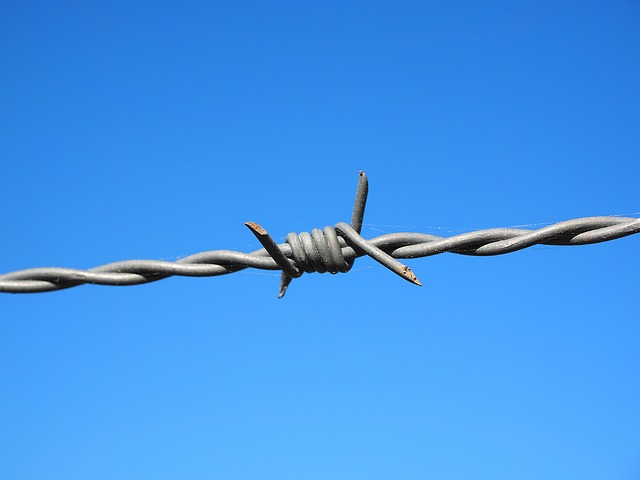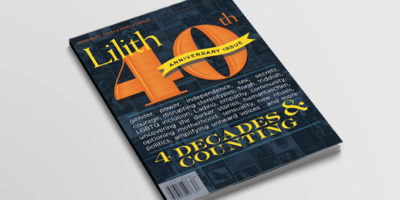
from “Children Hidden During the Holocaust”
A generation of the youngest Holocaust survivors (mostly women) speak.
One by one, they break out of their solitude, feel entitled to call themselves “survivors,” and tell what it means not to know your real name. [Fall 1991]
The first thing that strikes me is how good-looking everyone is. I wonder, is it because it’s a European crowd (there are over 500 here from Europe), or does it actually have something to do with their survivorship?
Were they especially beautiful children who had, because of their beauty, squeezed through an infinitesimal crack in a brutal Nazi guard’s heart? Some have stories to that effect —the German policeman who inexplicably whispered “run” to a five year old, the Polish woman who, faced with a “Sophie’s choice” when caught hiding children, gave two up in exchange for keeping “this little hugging one.” The crowd is, really, extraordinarily beautiful. The second thing that strikes me—also in the looks department—is how blond the room is. There are real blonds and fake blonds, but still, many more blonds per capita than one would find at a Hadassah convention or a CAJE conference. Every real blond, of course, means an Aryan-looking child, one who was more easily passed off as a Gentile’s “orphaned niece” or a Catholic convent child. One woman says, “To this day, I walk down a busy street and see waves of hair —blond, black, blond, black, and what I am saying to myself is ‘life’, ‘death’, ‘life,’ ‘death.’”
In the same way, a male survivor talks about gender. There are, after all, many times more women than men at the conference. “A circumcised penis meant death,” he says, “a child who was impossible to hide.” One woman shares what happened when she was a teenager trying to hide a baby boy. “It was more and more impossible to hide with him,” she says, because he was circumcised. “Finally, I was running through a field one day, knowing I was about to be caught. I handed my baby to someone, and I never saw him again. He would be 48 years old today. He looked like me.” [Unexpressed are the words, “Have any of you seen him?”]
Of course, as with many of the people in this room, that baby (now if living, a middle-aged man) did not know his name. Surviving without knowing your name. Talk about loss! What a disorienting loss, something that many of the youngest survivors in the room share.
One woman cries as she speaks. “I’m so unhappy,” she says. “I can’t find my place—I’m not Jewish. I’m not Christian. I don’t remember a thing about my real family.” Another woman stands from the back of the room. “I’m her sister,” she explains. “My sister was two when we went into hiding. I was five. I remembered a lot about my parents; I remembered my real whole name. I felt already really Jewish. I have had a happy life”—a life without the fundamental existential vacuum of some of the younger survivors.
…In the workshops, people stand to talk without regard to theme or subject. There is a sense of so much to say and so little time; so much to say for the first time. “I only heard my name once,” says a woman. “I was hiding in a crawlspace in the kitchen—I didn’t know my real name. I suppose I had forgotten it, or I was too young. It had probably been rehearsed out of me.” (Many nods around the room—many had been “rehearsed” out of knowledge.) But a German soldier came in and he asked if ____ was here. I instinctively knew that was my name. I said it to myself over and over. I was four.”
… I have the sense that if each hidden child were told to relate only one sentence about her childhood, she would know immediately what to report.
“I sat on a basket in a closet for two years,” says one woman. She is finished talking. The others push her to go on. “I often wonder what made me sit so quietly,” she adds, when pressed further. “How did I understand not to cry? Not to sneeze?” A lot of people’s hands go up in recognition. “I always think about that,” one woman says. “I was only three. How did I know to sit so silently, so uncomplainingly? We hid in the hay mow in the barn, and they used to come by with bayonets and throw them through the straw to see if anyone was hiding in there. I never peeped, never cried.”
“I was three,” says another woman. “My experience was like a piece of furniture. They passed me from house to house. My mother would come and take me, then move me to another house. Then she’d go back to the ghetto. I saw money exchange hands.”
…A single memory of biological parents seems to be very important, something that could keep a child going through months and years of hiding and loneliness and deprivation.


